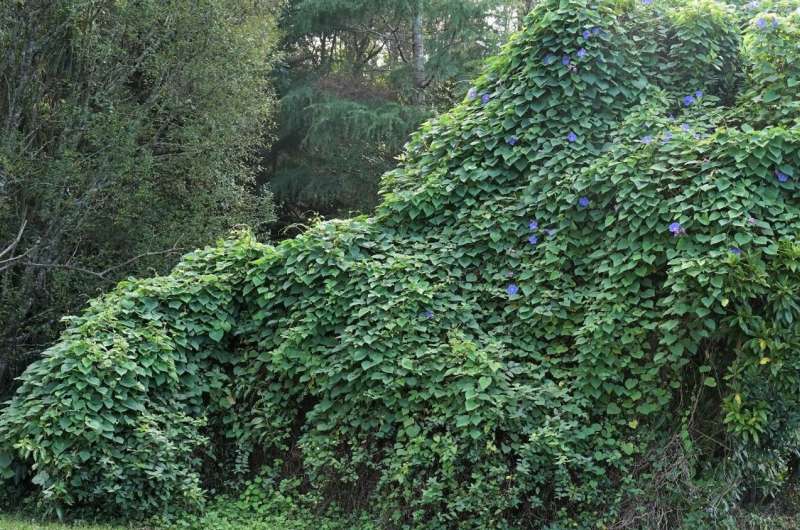This article has been reviewed according to Science X's editorial process and policies. Editors have highlighted the following attributes while ensuring the content's credibility:
fact-checked
peer-reviewed publication
proofread
Alien plantscapes make it hard to know what country you're in

Around the globe, natural habitats are being overrun by plant species originating from different regions. A study published today in Global Change Biology reveals that the growing prevalence of exotic plants in our gardens can have severe repercussions for native ecosystems. Seemingly harmless non-native garden plants are a source for future invasive species—a phenomenon known as invasion debt. This not only threatens natural ecosystems but also erodes cultural identity and our sense of place, says the author Professor Len Gillman. Due to the widespread planting of foreign species, plant landscapes are becoming increasingly indistinguishable among regions and countries.
The time it takes for a plant species to transition from non-invasive to invasive status can vary greatly, from several centuries to virtually overnight if, for example, a critical pollinator arrives. Climate change further exacerbates the unpredictability of future threats posed by specific plant species, says Professor Gillman. Of crucial importance is that the likelihood of a species shifting from being a harmless garden plant to one that is invasive and detrimental to the natural environment is directly proportional to the number of exotic plants present.
In contrast, native species growing in their region of origin play a crucial role in reinforcing commitment to biodiversity conservation. Professor Gillman recommends that local and central governments explore policies aimed at significantly reducing the presence of non-invasive non-native plants in the environment.
Potential policies may include import bans on exotic species, stipulations for native-only planting in new developments, automatic bans on the sale and propagation of exotic species known to reproduce in the wild, and initiatives to gradually replace exotic plants on public land with native ones.
More information: Len Gillman, Calling time on alien plantscapes, Global Change Biology (2023). DOI: 10.1111/gcb.16704
Journal information: Global Change Biology
Provided by AUT University



















